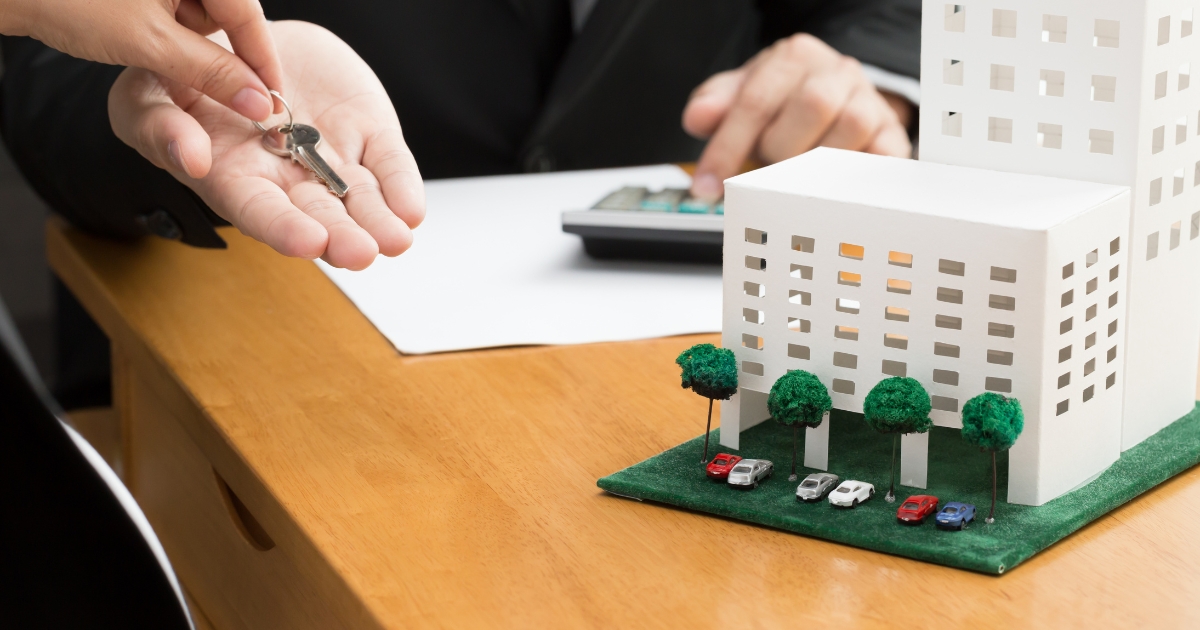Mortgage Calculator UAE: Your Guide to Home Loan Calculations
 Probo Mortgage
06 Jan, 2025
11 mins read
229
Probo Mortgage
06 Jan, 2025
11 mins read
229

If you're planning to buy a property in the UAE, chances are you're already considering a mortgage. But before diving into the complex world of home loans, have you ever wondered how much you can afford or what your monthly payments would look like? This is where a mortgage calculator UAE becomes your best friend. In this guide, we'll explore the importance of using a mortgage calculator in the UAE, and how it can help you make informed decisions about your home financing. Whether you're a first-time homebuyer or someone looking to refinance, understanding how a mortgage calculator works is crucial to your financial planning.
What is a Mortgage Calculator?
Definition and Purpose
A mortgage calculator is a tool that helps you estimate your monthly mortgage payments based on specific loan details. It uses factors such as the loan amount, interest rate, and loan tenure to provide an estimated monthly payment, which can be essential for planning your finances.
How It Works for Homebuyers in the UAE
The mortgage calculator in the UAE operates similarly to those in other parts of the world. However, there are certain variables unique to the UAE that affect mortgage calculations, such as the down payment requirements and different property types.
Why Should You Use a Mortgage Calculator in the UAE?
Helps in Planning Your Finances
A mortgage calculator provides clarity on how much you can afford to borrow, based on your monthly income and financial commitments. By entering basic information, you can instantly see what your payments will look like, making it easier to plan for the future.
Provides Transparency in Loan Options
With so many mortgage options available in the UAE, a calculator helps you compare different scenarios and determine which loan structure is best suited for your financial situation.
Saves Time and Effort
Rather than spending hours contacting banks or mortgage brokers, you can use the calculator to quickly assess your options and decide if you want to explore further.
Factors Affecting Your Mortgage Calculation in UAE
Several factors play a role in calculating your mortgage payments:
Loan Amount
This is the amount you plan to borrow to finance your property. The higher the loan amount, the higher your monthly payments will be.
Interest Rate
The interest rate determines how much you'll pay in addition to the principal amount. Interest rates in the UAE can vary based on the type of mortgage, the bank, and the market conditions.
Loan Tenure
Loan tenure refers to how long you’ll be paying off the loan. A longer tenure means lower monthly payments, but you might end up paying more in interest over time.
Property Type
Some property types, like luxury properties, may come with different financing conditions, influencing the mortgage calculation.

How to Use a Mortgage Calculator in the UAE
Step-by-Step Guide on Using the Calculator
- Enter the loan amount: This is the total price of the property you intend to buy, minus your down payment.
- Select the interest rate: You can input the rate based on the loan terms offered by your bank.
- Choose the loan tenure: This could range from 5 to 30 years, depending on your preference.
- Click 'Calculate': The calculator will give you an estimate of your monthly payment.
Example Calculation
Let’s say you're looking to buy a property worth AED 1,000,000 with a 20% down payment. The interest rate is 3.5% for a 20-year loan. Using the mortgage calculator, you can instantly see that your monthly payment would be AED 5,700 approximately.
Types of Mortgages Available in UAE
In the UAE, you’ll find a variety of mortgage options:
Fixed-Rate Mortgages
With a fixed-rate mortgage, the interest rate remains the same throughout the loan period, providing stability and predictability.
Variable-Rate Mortgages
In a variable-rate mortgage, the interest rate fluctuates based on the market conditions, meaning your monthly payments could increase or decrease.
Understanding Interest Rates in the UAE
What Impacts Interest Rates?
Several factors affect interest rates in the UAE, including the Central Bank’s base rate, the bank’s policies, and the type of mortgage you choose.
Fixed vs. Variable Rates
Fixed rates offer stability, while variable rates may allow you to benefit from lower rates when market conditions are favorable.
The Role of the UAE Central Bank
The Central Bank of the UAE plays a critical role in influencing interest rates by adjusting the base rate, which in turn affects lending rates across the country.
Loan Tenure: How Long Should You Choose?
The loan tenure is a significant factor in determining your monthly payments:
The Impact of Loan Tenure on Monthly Payments
A longer tenure reduces your monthly payments but increases the total interest paid. A shorter tenure increases monthly payments but reduces the interest burden.
Ideal Loan Tenures for Different Budgets
For example, a 30-year loan might be suitable for those with a limited budget, whereas those with a higher income might prefer a 15-year loan to pay off the loan faster.
Benefits of Using a Mortgage Calculator in the UAE
Accurate Loan Projections
A mortgage calculator provides realistic estimates that reflect the true cost of your loan, allowing for better financial planning.
Comparing Different Loan Scenarios
You can try various interest rates and loan tenures to find the best option for your financial situation.
Avoiding Surprises in Your Financial Planning
By understanding your monthly payments in advance, you can avoid unexpected financial strain later.
Common Mistakes to Avoid When Using a Mortgage Calculator
Incorrect Input of Figures
Always double-check the numbers you input, such as the loan amount and interest rate, to ensure accurate results.
Ignoring Additional Costs
Mortgage calculators often do not include additional costs such as taxes, insurance, or maintenance fees, so it's important to factor those in separately.

How Mortgage Calculators Help with Refinancing in UAE
Mortgage calculators can also be useful when considering refinancing options. By recalculating your potential monthly payments with a lower interest rate or a different loan tenure, you can estimate how much you could save.
Is a Mortgage Calculator Accurate?
Accuracy of Online Tools
Mortgage calculators are usually quite accurate, but they make some assumptions. For example, they may not account for changes in interest rates or your income.
Limitations and Assumptions
Calculators also typically assume that you’ll maintain the same loan terms throughout, which may not be the case if you decide to refinance or pay off your mortgage early.
Tips for Getting the Best Mortgage Deal in the UAE
Leverage Mortgage Calculators for Better Negotiations
Use the results from your mortgage calculator to negotiate better terms with banks, especially if you can show you're well-prepared financially.
Factors to Consider When Comparing Mortgage Offers
Don’t just look at the monthly payment – compare the total cost of the loan, including interest rates and fees.
Real-life Examples of Using a Mortgage Calculator
Let’s look at a case study: Ahmed used a mortgage calculator to determine his monthly payments for a home worth AED 2,000,000. After adjusting the loan tenure and interest rate, he realized that extending the loan tenure would significantly reduce his monthly payments, making it more affordable.
Conclusion
In conclusion, a mortgage calculator is an essential tool for homebuyers in the UAE. It helps you make well-informed decisions, compare different mortgage options, and plan your finances effectively. Whether you're buying your first home or refinancing, taking the time to use a mortgage calculator can lead to a smoother and more confident home-buying experience.
Written By:
Probo Mortgage



Hotels at your convenience
Now choose your stay according to your preference. From finding a place for your dream destination or a mere weekend getaway to business accommodations or brief stay, we have got you covered. Explore hotels as per your mood.


